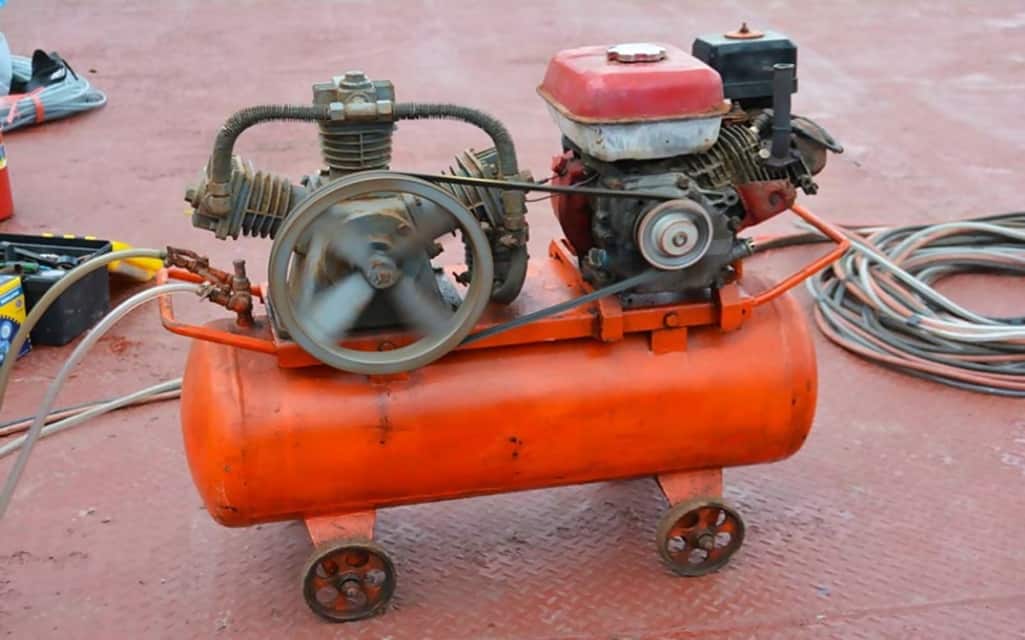If you want the long life as well as smooth operation of your air compressor, you would have to pay attention to its maintenance at all costs. That will also reduce the operational cost of your air compressor.
If your air compressor is not maintained properly, it will malfunction and then eventually break down. Breakdowns are not only costly because you have to replace the entire thing, but also because of the loss of production.
Here are certain tips that you can keep in mind if you want proper maintenance of your air compressor.
1. The owner’s manual
You need to keep the owner’s manual in hand at all times. Read it, understand it, and follow it. Keep it in a place where it is relatively retrievable.
Air compressors are generally the kind of equipment that does not require daily maintenance. But whenever you encounter a problem, these manuals prove to be very helpful.
They will provide you with all the Do’s and Don’ts and the tips that will help in the effective and safe operation of your compressor.
If your manual is missing, you don’t have to worry. The manufacturer’s manual will be available online, which can be downloaded. You can also call the customer service and request them to send one to you.
2. Ambient
You need to clean your air compressor on a regular basis if you want to keep it free of debris and dust. If your compressor is installed permanently, you have to ensure proper cooling and ventilation in the compressor room.
If the room is inadequately ventilated, your air compressor will be overheating, leading to malfunctioning.
3. Alignment
If you want your air compressor to continue to function smoothly, you will have to ensure proper alignment of the motor.
The alignment of the motor is especially critical to the function of the large units that are coupled flexible or driven by the belt. Keep an eye out for any excessive vibration or abnormal voices.
If you want alignment data, you can refer to the manufacturer’s guide.
4. Inlet air filter
Many industrial air compressors will come with an inlet air filter. The job of this inlet air filter is to ensure that the compressor gets clean air. It also works as a silencer or a muffler.
This filter has to be inspected and cleaned regularly. If the filter gets clogged, it will lower the operational efficiency, and electricity consumption will become higher.
The dirty air will cause more than normal wear and tear of the internal parts of the compressor and will damage the tools as well.
5. All the fasteners need to stay tightened
While air compressors are running, they produce certain kinds of vibrations. They all do that, regardless of their type. The reciprocating type of compressors produce vibrations that are higher than the rotary type air compressors.
In both cases, they need to be checked regularly to ensure that all nuts and bolts are fastened and in place. If you find that any fasteners are loose, make sure to tighten them.
6. Cooling water
Most air compressors, whether used in industries or home garage air compressors, are cooled by water.
Moreover, the two-stage compressors tend to have an aftercooler, that will cool the air right after the compression’s first stage has been passed, before it proceeds to stage number two.
This process of after cooling is responsible for the increase in the system’s overall efficiency. It also saves the energy that is consumed.
Make sure that an adequate amount of cooling water is supplied to the air compressor, within the recommended pressure and temperature range. If the water is too hot, it will not give them a sufficient amount of cooling to the compressor.
If the water is too cold, it will result in thermal shocks that lead to cracks in the head of the compressor.
7. Lubrication
If you want your compressor to continue to operate smoothly, you will have to ensure proper lubrication of all of the compressor part.Lack of proper lubrication is going to lead to unnecessary wear and tear of the parts of the compressor, resulting in a breakdown.
Check the oil level regularly. And change the oil according to the recommended intervals.
8. Drain the receiver
During the process of air compression, the air will get separated and trapped in the air receiver.
The water has to be drained periodically.Ensure that you release air pressure from the receiver before you drain the water manually. More water will accumulate if the environment is humid.
9. Check the hoses regularly
The hoses serve as the veins of your compressor. They will begin to leak if they are corroded or cracked.
After that, they will start putting a strain on the rest of the parts of the compressor. Make sure that you keep them under check and replace them if any damage is noticed.
10. Heat exchanger
The heat exchanger reduces the temperature of your air compressor. If your compressor has one, you have to make sure that you clean it periodically.
By doing that, you will be increasing the life expectancy of your air vehicle.
11. Check the safety shut down the test
The industrial compressors come with an automatic emergency shut down the system. This system is essential for the automatic shutting down if any operational limits are exceeded.
You should perform this test to make sure that it is performing well and your DV System air compressor is protected.



